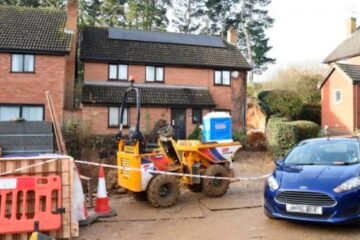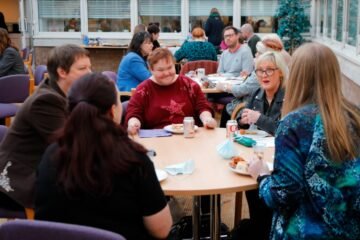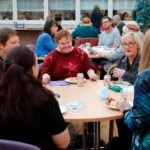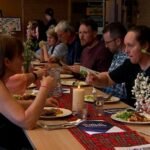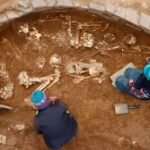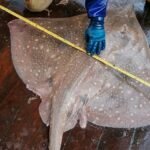A Scottish toddler, Lucas Garcia-Batalla, was diagnosed with an incurable brain tumour the size of a tennis ball after his parents initially thought he had a stomach bug. Just ten days after his first birthday, Lucas was diagnosed with a grade 3 anaplastic ependymoma, a fast-growing malignant tumour. His parents, David Garcia Jurado and Laura Batalla, were shocked by the diagnosis. Despite undergoing multiple surgeries and treatments, Lucas’s condition remains critical, highlighting the devastating impact of childhood brain tumours.
A Shocking Diagnosis
Lucas Garcia-Batalla’s parents initially believed their son had a simple stomach bug. He was lethargic, vomiting, and had lost his appetite. These symptoms seemed typical of a common illness, but they persisted and worsened. Concerned, David and Laura took Lucas to the hospital for further examination. A CT scan revealed a massive tumour at the back of his head, measuring 4cm by 4cm. The diagnosis was a grade 3 anaplastic ependymoma, a rare and aggressive brain tumour.
The news was a devastating blow to the family. Lucas had just celebrated his first birthday, and now they were facing an uncertain future. The tumour’s size and location made it a significant challenge for the medical team. Lucas was immediately transferred to The Royal Hospital for Children and Young People in Edinburgh, where he underwent a 10-hour surgery to remove the tumour. The surgery was successful, but it was just the beginning of a long and arduous journey for Lucas and his family.
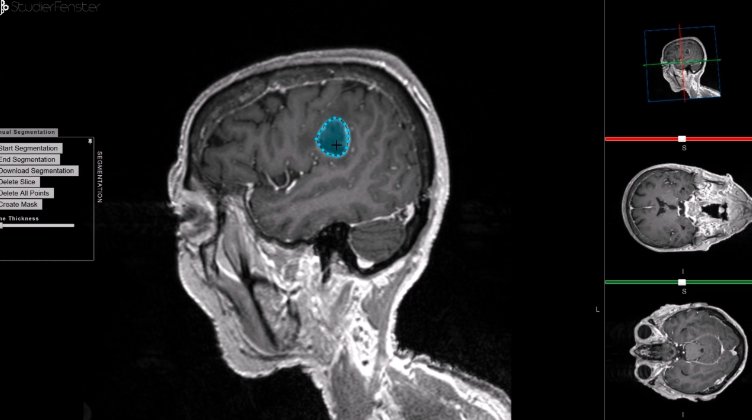
Following the surgery, Lucas underwent 13 months of chemotherapy to target any remaining cancer cells. The treatment was grueling, but Lucas showed remarkable resilience. An MRI scan after the chemotherapy showed no signs of the tumour, giving the family a glimmer of hope. However, their relief was short-lived. Just three months later, in September 2020, Lucas relapsed, and the tumour returned. This marked the beginning of a series of treatments and surgeries that would test the family’s strength and resolve.
The Battle Continues
Lucas’s relapse in 2020 was a significant setback. He underwent another surgery to remove the tumour, followed by two months of proton beam therapy at The Christie Hospital in Manchester. This advanced form of radiation therapy was hoped to be more effective in targeting the tumour while minimizing damage to surrounding healthy tissue. Despite these efforts, Lucas’s condition continued to deteriorate. In December 2021, he relapsed again, and the tumour grew back.
The family faced another difficult decision. Lucas underwent palliative surgery in March 2022 to remove the tumour once more. This surgery was also successful, but the tumour’s aggressive nature meant that it was likely to return. In January 2023, Lucas underwent experimental Gamma Knife surgery, a type of radiotherapy that uses focused beams of radiation to target the tumour. This was the first time such a procedure had been performed on a child as young as Lucas, and it offered a glimmer of hope.
Unfortunately, in June 2023, an MRI scan revealed that the tumour was continuing to grow. The family was devastated by the news. There were no more treatment options left for Lucas, and the focus shifted to providing him with the best quality of life possible. David and Laura have been doing everything they can to make Lucas’s remaining time as joyful and comfortable as possible. They have been cherishing every moment with their son, knowing that their time together is limited.
The Emotional Toll
The emotional toll of Lucas’s illness has been immense for the family. David and Laura have been living in a constant state of anxiety and fear, watching their son endure countless medical procedures and treatments. The uncertainty of Lucas’s prognosis has been a heavy burden to bear. They have had to navigate the complexities of the healthcare system, advocate for their son’s needs, and make difficult decisions about his treatment.
Despite the challenges, David and Laura have remained steadfast in their support for Lucas. They have been by his side every step of the way, providing love and comfort during the most difficult moments. Their strength and resilience have been a source of inspiration for many. The family’s story has touched the hearts of people around the world, drawing attention to the urgent need for more research and support for childhood brain tumours.
Lucas’s journey has also highlighted the importance of early diagnosis and intervention. What initially seemed like a simple stomach bug turned out to be a life-threatening condition. The family’s experience underscores the need for parents and healthcare providers to be vigilant and proactive when it comes to children’s health. Early detection and treatment can make a significant difference in the outcome of serious illnesses like brain tumours.

